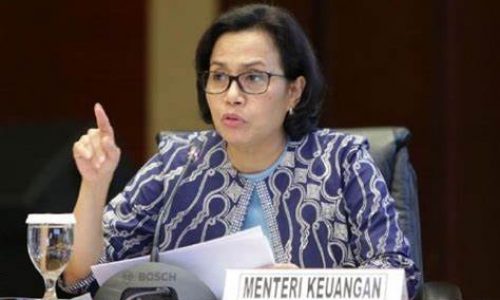Forming a joint venture company serves as one of the options to inject capital in Indonesia. Simply put, establishing a joint venture company is done by partnering with a local company. In this article, we will briefly explain the understanding of joint venture companies in Indonesia.
Governing law and regulation
- Law No. 25/2007 on Investments as amended by Law No. 11/2020 on Job Creation
Definition and type
The term joint venture would occasionally be understood in two ways, joint operation and establishing a joint venture company.
A joint venture scheme in Indonesia is interpreted as two or more companies that establish a new limited liability company together with the aim of unifying resources and running the business within a certain period of time. This is stipulated further in Law No. 25/2007 on Investments, which states that foreign and domestic investors who conduct investment in the form of a limited liability company can subscribe for shares at the time of the incorporation of the limited liability company. A joint venture company can be in a form of cooperation between domestic and foreign legal (also known as a foreign investment company or PT PMA) entities or between domestic legal entities.
Whereas the form joint operation scheme in Indonesia could be found in Law No. 2/2017 regarding Construction Service, it is explained as an agreement between a foreign construction representative office and a local construction company to perform construction work activities cooperatively. With the joint operation scheme, there is no establishment of a new company.
Establishment requirement
Foreign investors must note that Indonesia has a Positive Investment List, which lists down business sectors in Indonesia that are open, conditionally open, or entirely closed for foreign investments. A certain form of the conditionally open requirement is the limitation of foreign capital ownership. To illustrate, a Telecommunications Network Services Company has the maximal foreign capital investment of 67%, or a Venture Capital company can only be up to 85% foreign-owned. In such a case, establishing a joint venture company with a local Indonesian business would be the best solution.
For joint ventures in the form of PT PMA, domestic capital is at least 51% of the total capital of the joint venture company. However, this percentage of ownership can be larger or smaller, depending on the line of business that the joint venture company will enter, considering that the government has issued a Negative Investment List which states the maximum percentage of foreign capital that may enter the business sector. certain. There are a number of business fields that are closed to joint ventures so foreign investors should check out the latest Negative Investment List.
Joint venture companies in the form of PT PMA are required to apply for a principal license and permanent business license (IUT) to the Investment Coordinating Board (BKPM). They also have to periodically submit the Investment Activity Reports (LKPM) to the BKPM.
As a company established for the purpose of foreign investment, joint venture companies are granted a business license for a period of 30 (thirty) years from the time the company starts commercial production. The license can be updated for more than 30 years by the Minister of Investment/BKPM Chairman if the company still runs the business which is beneficial for export, manpower, tax revenue, environment and national development.
Procedure
There is no regulation that definitively provides the procedure of establishing a joint venture company apart from the general incorporation of PT PMA. However, in practice, the parties in the joint venture scheme would first undergo negotiation and form a joint venture agreement. Below are the typical pre-establishment steps of forming a joint venture company:
- Negotiation
- Agreement on the arrangement of the joint venture set out under a Memorandum of Understanding (MoU)
- Creating the joint venture agreement (JVA)
A JVA is a contract between some or all shareholders in a company. Generally, the JVA must reflect a clear relationship between the parties and can describe the development of the relationship in the future.
Even if there is no specific requirement as to the content of JVA, it is best to prepare a few provisions on the management of the joint venture company. In making a JVA, the parties must fulfill the terms of the agreement as stipulated in Article 1320 of the Indonesian Civil Code and comply with the Indonesian limited liability company law (Law No. 40/2007). In practice, JVA would contain how the company is managed, regulate matters that might become a problem in the future if not agreed upon in advance, and be regulated in accordance with the provisions of the applicable laws.
The JVA usually contains:
- The purpose and objectives of the JVA
- The form, business entity, and business fields of the joint venture company
- The regulation about the establishment, capital, and position of the joint venture company
- The board of commissioners and directors of the joint venture company
- The rights, obligations, and responsibilities of the parties and the shareholders
- The dividend distribution and loss risk.
- The period of establishment of the joint venture company
- The dispute resolution
From this point on, as foreign investments in Indonesia are in the form of a limited liability company, thus, after agreeing on the JVA the next procedure is to follow the series of steps on establishing a limited liability company.
Document language
Under Presidential Regulation (Perpres) No. 63/2019 on the use of Indonesian Language, any MoUs and agreements that involve an Indonesian national or entity must be made in Indonesian language. In the event that the MoUs and agreements involve foreign parties, the relevant documents may also be written in the national language of the foreign party and/or in English language.
All non-Indonesian language versions of the MoU or agreement are considered as an accessory or translation of the Indonesian version document. The parties to an agreement must ensure that the Indonesian version is to be executed first or concurrently with the other language versions to eliminate the risk of the agreement being contrary to Perpres No. 63/2019.
However, Perpres No. 63/2019 provides the ability for the parties to agree on the governing language that would prevail if discrepancies between the two versions arise.









